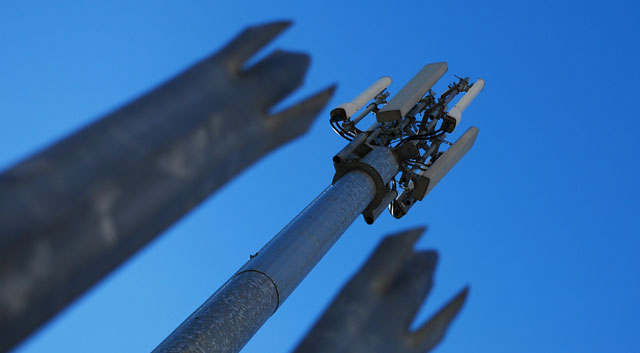 When Vodacom announced 10 days ago that it will hike the subscription fees of a range of contract tariff plans from 1 May, it caught consumers by surprise. Many took to social media networks and the comments sections of news websites to voice their displeasure.
When Vodacom announced 10 days ago that it will hike the subscription fees of a range of contract tariff plans from 1 May, it caught consumers by surprise. Many took to social media networks and the comments sections of news websites to voice their displeasure.
While South Africans have become accustomed to regular increases in the price of most goods and services — with Eskom leading the pack with its massive annual tariff hikes — they’ve come to expect the opposite of the telecommunications industry, where the cost of voice and data products has fallen, often in the double-digit percentages, for years.
Deflation, consumers now think, is the new normal in telecoms. So, when Vodacom announced its price hikes — even though they’re modest — the bile flowed freely.
But it’s what’s underpinning the hikes that are the real cause for concern. After many years of strong growth and healthy (some would say rude) profits, South Africa’s telecoms operators are feeling real pain for the first time. Hit by spiralling costs and a squeeze on retail prices, their hiring sprees and lavish spending on sponsorships have been replaced with cost-cutting and retrenchment programmes.
Vodacom appears to have weathered the storm best, recognising early on the change in the business environment. Remember when Vodacom used to sponsor just about every rugby event in South Africa? It pulled the plug on that largesse when the going was still fairly good. Others, like MTN and Telkom, have been forced to cut jobs.
Some of the pain is the direct result of a more competitive market. When former Vodacom CEO Alan Knott-Craig returned to the industry in April 2012, as CEO of Cell C, he sought to steal market share from his bigger rivals by launching a price war. Voice tariffs plummeted and have stayed low, while mobile data has also become cheaper.
But factors external to the industry are adding to the pressure.
One of the biggest problems is South Africa’s ailing currency, which at the time of writing was at R12,15/US$. Just four years ago, the rand was stronger than R7/$. Because most of the equipment that telecoms operators need to maintain and expand their networks is imported, the weakening currency has had a direct impact on their capital costs.
But the operators cut their capex budgets at their peril — they need to maintain network quality to stay competitive. So the cuts have to come from elsewhere.
Eskom is another big challenge. Operators have done well to keep their networks running through rolling blackouts. But doing that is expensive: they have to deploy diesel generators at each of their sites and fire these up whenever load shedding is implemented. And fuel prices are rising again. Belatedly, the operators are talking up the idea of sharing this sort of infrastructure to reduce costs. They should have done this years ago.

A third issue is one that government should have helped address by now, and that’s making additional frequency spectrum available. Because operators have not been granted access to additional spectrum for broadband, they’ve been forced to “densify” their networks, building more base stations to cater for the growing demand for data.
The glacial pace at which South Africa is moving from analogue to digital terrestrial television is holding up the allocation of spectrum for broadband currently being hogged by television broadcasters. Also, government has taken unacceptably long to draw up a policy on how the Independent Communications of Authority of South Africa should allocate access in other important spectrum bands. By sitting on its hands, government is actively retarding the industry’s development and it deserves severe criticism for this.
Many South African consumers will delight in the pressure the industry is now under. After all, aren’t these companies the embodiment of a greedy capitalist system interested in nothing more than maximising profits at the expense of end users?
It’s certainly true that Vodacom and MTN enjoyed a sheltered environment for the first 15 years of their existence, protected from the vagaries of full competition. But it’s competition in recent years that has brought down prices and forced the operators to be more efficient. It’ll be unfortunate if external factors derail the benefits this has brought to consumers.
- Duncan McLeod is TechCentral editor. Find him on Twitter
- This column was first published in the Sunday Times

